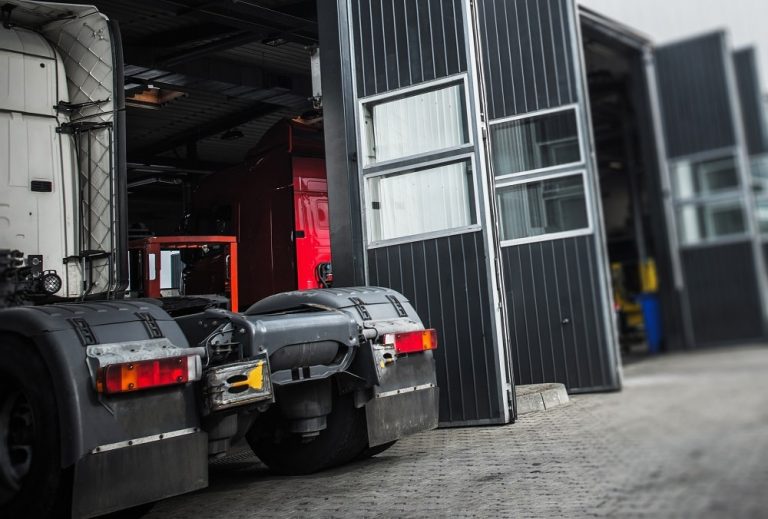From the White House to the Department of Transportation, the trucking industry has been recognized as an essential service during the COVID-19 pandemic. What has been encouraging to see is the recognition that trucking is an essential service that American consumers and commercial businesses rely on always. Not just in a National emergency circumstance. Changes to the sleeper berth rule help support truckers.
Trucking carriers and owner-operators have been working double time to keep up with the freight demand in certain sectors (particularly consumer goods and health supplies). But when special and urgent needs arise during a National emergency, some of the regulations that truckers must abide by, actually slow down the supply chain. And also cost truckers heavily, in terms of extra costs and delays, which for owner-operators, takes a substantial bite out of their profit margin.
Challenges Faced by Truckers and Restrictive Laws and Regulations
Since the adoption of Electronic Logging Devices or ELDs mandated by the Federal Government, CDL truckers and carriers have had to adjust the workflow and hours of operation, in accordance with regulated rest breaks. Truckers are forced to log their rest break hours on a schedule that has been established by the Department of Transportation (DOT).
To be clear, the intention of the HOS (hours of service) legislation and mandatory rest-breaks was sincere. It is meant to prevent tired truckers from driving on our highways, and presenting a safety risk to themselves, to the commercial cargo they carry and of course, to themselves.
If you have been reading news about truckers who are protesting or disputing HOS regulations and mandatory logging on ELDs, it is not because they disagree with rest-breaks an initiatives to promote safety with alert and well-rested drivers. It is because the inflexibility of the HOS and rest requirements were not written to accommodate the real workflow of the American trucking industry.
For instance, if a driver must stop every five hours for a rest break, the regulations may force him or her to stop in an unsafe area. Their personal safety, and the cargo they carry can be jeopardized. Furthermore, if they do not stop and log that break time by law, they can be fined. The penalties can be significant (particularly for repeat ‘offenders’).
What if the best and most safe route, would be driving in the off hours of the morning, through a stretch of highway that is usually congested during peak traffic times? That’s a common strategy used by truckers to ensure that drayage drop-off’s and pick-up’s are delivered on time.
Another issue, with truckers putting in extra hours during National and health emergencies, is access to the essential services they need on the road. What if a trucker is required to stop and log a rest break on schedule with the ELD, and that means he or she is now behind schedule. Will they be too late to get to a truck stop to buy food, or eat? Have a quick shower? Truck stops during the COVID-19 health emergency enforced reduced hours, which made things even more challenging for interstate truckers from Texas.
The HOS regulations do not allow for the flexibility in driving schedule that CDL truckers need, to navigate obstacles on the highway. It has had the opposite effect; instead of rested truckers, we see more frustrated and stressed drivers as a result of balancing HOS and sleeper berth with the practicalities and technical strategies drivers need to use occasionally, in challenging circumstances.
That is a big problem for the industry, and one that the American Trucking Association is trying to communicate to the Federal Government, in the hopes of reforming the new regulations. You can understand why some positive news for long-haul and interstate truckers is welcome news to the Texas trucking industry.
A New Trucking HOS (Hours of Service) Rule Announced
On Thursday May 14th, the Department of Transportation issued new guidance for truck drivers. The hours of service (HOS) regulations are still subject to public and industry comment, but the new reforms point to some much-needed accommodations. Not just during the COVID-19 pandemic, but also for future National Emergency circumstances.
The news announced a change to the sleeper-berth rules, which will allow CDL truckers to split the mandatory 10 hours of rest in two flexible ways. Drivers will now be able to do an 8-2 or 7-3 split, instead of being required to take one full period of 10 hour rest, that takes them off the road.
This change will also help alleviate problems with truck parking. Parking for heavy trucks was already limited and challenging prior to the new HOS regulations. It can be extremely difficult for truckers to find safe rest stops, where they are permitted to park for 10-hours.
Most commercial truck stops have a 1-2 hour maximum parking or sleeper berth rule. This is why you will sometimes see trucks parked at large retail parking lots like Walmart, which provides the complimentary space as a courtesy for truckers, at some locations. Finding a parking spot for a mandatory rest break has lead to safety problems and complaints, as cities and municipalities impose more restrictions on heavy trucks and parking.
The FMCA Acting Administrator Jim Mullen announced in his statement that the accommodations were compassionate to the needs of the American trucking industry, and that the changes would not be a detriment to highway safety. The new changes give truckers more options to strategize their mandatory rest breaks, without creating unreasonable delays, or difficulties for commercial truck drivers.
This accommodation will actually help more truck drivers reduce fatigue and stress. It will restore some of the scheduling flexibility that commercial truck drivers had before the Federal HOS regulations went into effect. And most importantly, it will ensure that the logistics industry as a whole can continue to support the American economy with unimpeded delivery of commercial, manufacturing and retail goods.
At Canal Cartage, we partner with some of the best and most experienced owner-operators in Houston Texas, to deliver quality drayage, crossdocking, warehouse consolidation and transmodal container services. We are pleased to see the new HOS reforms which we know will help streamline commercial logistics, and reduce delays and extra costs for freight management.



